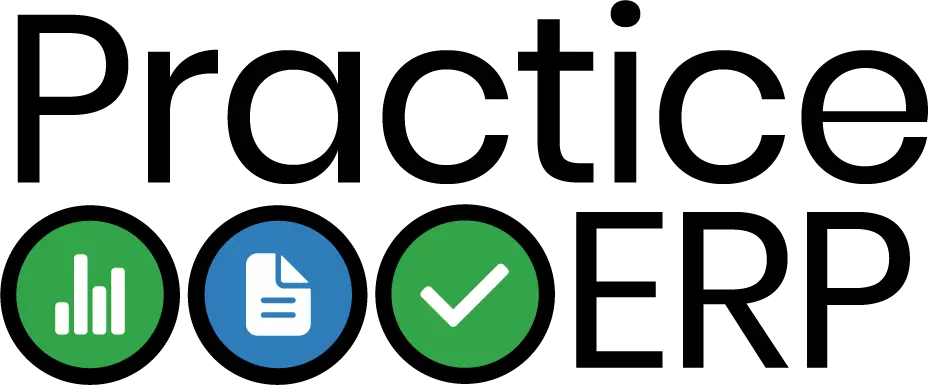Are you tired of juggling spreadsheets and drowning in paperwork? It’s time to streamline your accounting practice and make your life easier with the best software for accounting firms. With the right tools, you can say goodbye to manual entry and hello to simplified processes and increased efficiency.
At PracticeERP, we understand the challenges faced by accounting professionals. That’s why we have developed the ultimate solution for your firm. Our software is specifically designed to meet the unique needs of accounting practices, providing you with the tools you need to automate tasks, improve accuracy, and save time.
From managing accounts payable and receivable to generating financial reports, our software has it all. You can easily track expenses, reconcile accounts, and even handle payroll seamlessly. With user-friendly interfaces and intuitive features, you don’t need to be a tech expert to benefit from our software.
Don’t let outdated methods hinder your productivity. Upgrade to the best software for accounting firms and take your practice to the next level. Start streamlining your accounting processes today with PracticeERP.

Benefits of Using Accounting Software
Accounting firms face a myriad of challenges in today’s fast-paced business landscape. From managing client records and financial transactions to generating comprehensive reports, the workload can quickly become overwhelming. This is where accounting software steps in as a game-changer, offering a range of benefits that can revolutionize the way your firm operates.
One of the primary advantages of using accounting software is the significant time savings it provides. By automating repetitive tasks such as invoicing, expense tracking, and bank reconciliations, your team can focus on more strategic and value-added activities. This increased efficiency translates into faster turnaround times, enhanced productivity, and the ability to take on more clients without compromising the quality of service.
Moreover, accounting software offers unparalleled accuracy and data integrity. Gone are the days of manual data entry errors and lost receipts. With features like real-time data synchronization, automatic calculations, and built-in error-checking mechanisms, your firm can ensure that all financial records are meticulously maintained, reducing the risk of costly mistakes and compliance issues. This level of precision not only instills confidence in your clients but also streamlines the auditing process, saving valuable time and resources.
Key Features to Consider in Accounting Software
When it comes to selecting the best accounting software for your firm, it’s essential to look beyond the basic functions and delve into the specific features that can truly transform your operations. One such feature is the ability to manage multiple clients and their respective accounts seamlessly. The software should provide a centralized platform where you can easily switch between client files, access relevant data, and generate customized reports tailored to each client’s needs.
Another crucial feature to consider is the software’s integration capabilities. In today’s digital landscape, accounting firms often rely on a suite of tools, from CRM systems to payroll platforms. The best accounting software should seamlessly integrate with these complementary applications, allowing for a streamlined workflow and the elimination of data silos. This level of connectivity ensures that all financial information is centralized, accessible, and up-to-date, empowering your team to make informed decisions and provide comprehensive services to your clients.
Robust reporting capabilities are also a must-have when evaluating accounting software. The software should offer a wide range of pre-built financial reports, such as balance sheets, income statements, and cash flow statements, as well as the ability to customize and generate ad-hoc reports as needed. Additionally, the software should provide visual analytics and dashboards that offer real-time insights into your firm’s financial health, enabling you to make data-driven decisions and identify areas for improvement.
Tips for Choosing the Best Accounting Software for your Firm
When it comes to selecting the best accounting software for your firm, the process can be daunting, given the myriad of options available in the market. However, by focusing on the specific needs of your practice and following a structured approach, you can ensure that you choose the software that truly aligns with your firm’s goals and requirements.
One of the first steps in this process is to conduct a thorough assessment of your firm’s current accounting workflows and pain points. Identify the specific tasks and processes that are consuming the most time and resources, and prioritize the features that will have the greatest impact on your efficiency and productivity. This exercise will help you narrow down the selection criteria and ensure that the software you choose addresses the unique challenges faced by your firm.
Another crucial consideration is the software’s scalability and flexibility. As your firm grows and evolves, your accounting needs may change. The best software should be able to accommodate these changes seamlessly, whether it’s the ability to handle an increased volume of transactions, integrate with new systems, or adapt to changing regulatory requirements. Look for software that offers a robust and customizable platform that can grow alongside your firm.
Conclusion: Streamlining your Accounting Practice with the Right Software
In the fast-paced world of accounting, the right software can be the difference between chaos and efficiency, between missed deadlines and seamless client service. By investing in the best accounting software for your firm, you can unlock a world of benefits that will transform the way you operate and position your practice for long-term success.
From streamlining your workflows and improving data accuracy to enhancing client communication and unlocking valuable insights, the right accounting software can be a game-changer for your firm. By leveraging the power of automation, integration, and robust reporting capabilities, you can free up your team to focus on strategic initiatives, provide exceptional service to your clients, and ultimately drive the growth and profitability of your practice.
Embracing the transformative power of accounting software is not just a competitive advantage – it’s a necessity in today’s fast-paced business environment. By taking the time to carefully evaluate your options and select the software that best aligns with your firm’s unique needs, you can position your accounting practice for success and ensure that you stay ahead of the curve in an increasingly digital landscape.
Implementing Accounting Software in your Practice
Transitioning to a new accounting software solution can be a daunting task, but with the right approach, it can be a seamless and rewarding experience. The key to a successful implementation lies in careful planning, clear communication, and a well-executed rollout strategy.
Begin by assembling a dedicated implementation team within your firm, comprising key stakeholders and subject matter experts. This team will be responsible for overseeing the entire process, from evaluating the software’s capabilities to training your staff and ensuring a smooth transition. Involve your team in the decision-making process, as their input and buy-in will be crucial for the long-term success of the software implementation.
Next, develop a comprehensive implementation plan that outlines the timeline, milestones, and key tasks. This plan should include a thorough assessment of your existing data and processes, as well as a strategy for migrating your historical records to the new software. Additionally, allocate sufficient time and resources for comprehensive training sessions, ensuring that your team is well-equipped to leverage the software’s full capabilities.
Training and Support for Accounting Software
Successful implementation of accounting software is not just about the technology itself – it’s also about empowering your team to make the most of the tools at their disposal. Comprehensive training and ongoing support are essential for ensuring that your firm maximizes the benefits of the software and seamlessly integrates it into your daily operations.
When it comes to training, the software provider should offer a range of options, from in-person workshops and webinars to self-paced online tutorials and user manuals. Invest in training sessions that cover not only the basic functionalities but also the more advanced features and customization capabilities. Encourage your team to actively participate in the training process, as their engagement and understanding will be crucial for driving long-term adoption and proficiency.
Equally important is the availability of ongoing support and resources. Look for software providers that offer dedicated customer service channels, such as a helpdesk, live chat, or a comprehensive knowledge base. These resources should be readily accessible, responsive, and staffed by knowledgeable professionals who can quickly address any questions or issues that may arise. Additionally, consider the software’s community support, such as user forums and online discussion groups, which can provide a valuable source of peer-to-peer learning and troubleshooting.

